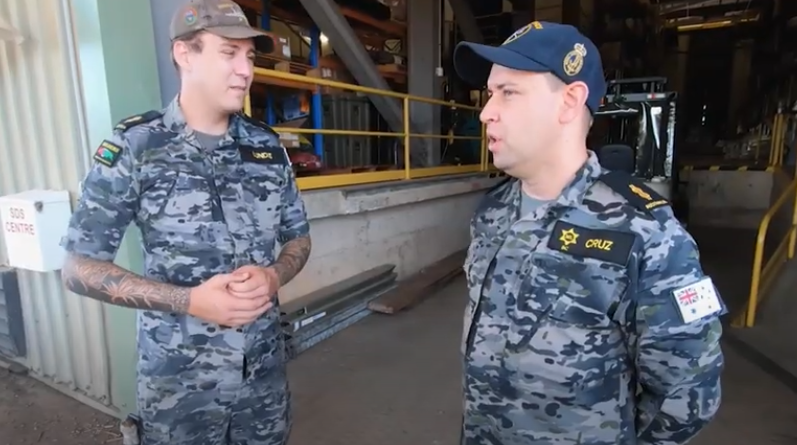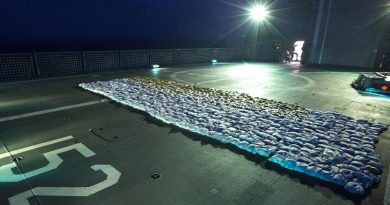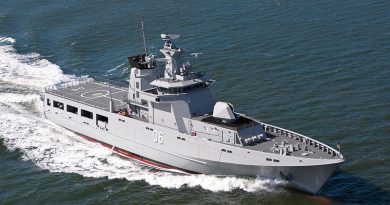Navy’s new uniform – updated 13 May 2022

Royal Australian Navy personnel are getting a new, lighter camouflage working uniform.
CAPTION: Navy’s new MMPU lighter camouflage working uniform. Video clip.
The new Maritime Multi-Patterned Uniform (MMPU) is being introduced across Navy, with some Navy personnel attending the Indo Pacific 2022 Expo (10-12 May 2022) in Sydney already wearing it.
The Australian designed and manufactured uniforms have been a collaboration between Defence and industry and is set to deliver significant benefits for Navy.
The roll-out of the new MMPU is gaining momentum and more personnel are benefiting from a lighter weight, more practical and great looking working uniform
The rollout of Navy’s new maritime multi-patterned uniform (MMPU) has begun in the Sydney region.
The Australian-designed and manufactured uniforms have been a collaborative effort between Defence and industry and are already delivering significant benefits to Navy people both in shore-based positions and for those personnel serving at sea.
Director-General Navy Logistics, Commodore Nathan Robb, said the contribution of Australian industry had been critical to the development of the new uniform.
“This project has delivered significant benefits to Navy people, who have been a key contributor to the outcomes by way of testing and feedback in the design of the uniforms during the project,” Commodore Robb said.
“By listening to our people and working with industry, the uniform delivered is more lightweight, fit for Navy purpose and suitable for the range of conditions and environments our Navy operates in.
“The design and delivery of the MMPU is an excellent example of collaboration to deliver improved capability for our people and, beyond that, it is an Australian solution that provides resilience in supply chains and benefits local industry.”
The garments are manufactured in Australia by Australian Defence Apparel (ADA), based in Bendigo and Melbourne, Victoria, and Workwear Group in Melbourne using fabric manufactured by Bruck Textiles in Wangaratta, Victoria.
ADA’s Australian industry capability manager, David Frith, said ADA embraced the opportunity to be involved in the MMPU project to demonstrate Australian capability and to benefit ADF people.
“We designed this uniform in partnership with Defence, and we searched globally for the best fabric we could find, and then designed and tested solutions that met Navy’s requirements,” Mr Frith said.
“The result is a complete Australian solution, designed in-house at ADA in Victoria incorporating the latest research and development approaches to better solve things like the fire-retardant properties required for the at-sea version of the uniform.
“Our large research and development team and designers looked at trends and innovations globally to bring advanced solutions for the MMPU uniform.
“This project is evidence that Australian manufacturing can deliver and compete very strongly with the rest of the world.”
Bruck Textiles’s Group general manager, Vineet Dhawan, said the manufacture of the MMPU material in Australia showcased the ability to innovate and deliver capability in Australia.
“We are very proud to have produced this new, innovative, lightweight solution, which has made the shirt 25 percent lighter, the trousers 15 percent lighter, and has incorporated the fire-retardant properties within the fabric, not in addition to the fabric,” Mr Dhawan said.
“Being involved in this great project helps keep both industry and the capability sustainable.”
The new uniform has received positive feedback.
Able Seaman Shona Bartell said she loved the new MMPU.
“The MMPU is very breathable and light, and I don’t have to worry about taking off my jacket so much, especially when working in in warmer conditions,” Able Seaman Bartell said.
“The new positioning of the pockets and the better visibility of rank slides are also benefits.”
Initial rollout of the MMPU began in Darwin and Cairns in October last year, followed by Western Australia earlier this year.
The rollout of MMPU across Navy is scheduled to take place progressively across remaining states and is scheduled to be completed by the end of 2022.
.
.

.
.





